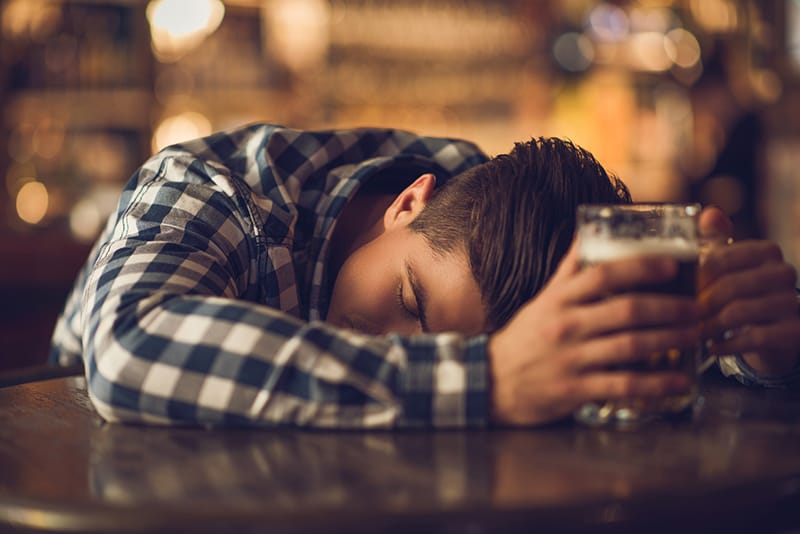Binge drinking is a problem in Iowa. Our college campuses have gained notoriety for regularly ranking as top party schools.
But the problem extends beyond Ames and Iowa City. Across the state, 20 percent of Iowa adults binge drink — higher than the national average. All that drinking leads to another issue where Iowa "ranks" highly: alcohol poisoning.
Alcohol poisoning is a common result of binge drinking.
Four drinks for women, five for men. Those are the safe levels of drinking outlined by the U.S. Department of Health and Human Services. Going beyond that is considered binge drinking and puts you at risk of alcohol poisoning.
When you vomit from drinking too much, your body is reacting to the excess of toxins in your system. But it can be much worse than a night spent hugging the toilet. Alcohol affects the brain's ability to function. Overconsumption can cause your brain to shut down critical functions that control your breathing, heart rate and body temperature. Without these vital functions, you can suffer permanent brain damage or death.
You might think alcohol poisoning is a problem for younger people who don't "know their limits" or haven't learned how to "handle their liquor." It's not. Binge drinking is reported more frequently in young people but alcohol poisoning is more likely to affect those who are well past their college years. Seventy-five percent of alcohol poisoning deaths are among adults ages 35 to 64, according to the CDC. Most of them are white men.
There are more life-threatening signs than acting drunk.
Alcohol does its damage long after your last drink. It takes time for your body to process the alcohol, so it continues to get into the bloodstream after you stop drinking. Your blood alcohol level and how intoxicated you feel can change in a short time.
You've seen many of the signs of alcohol poisoning. Maybe you've experienced them yourself. Passing out, vomiting and being in a drunken stupor are the most common symptoms, but there are several more dangerous warning signs:
- Seizures
- Coma or inability to wake up
- Slow or irregular breathing
- Hypothermia
- Bluish or pale skin
With any of these signs, the brain has shut down a critical function and there's a bigger risk for permanent brain damage or death.
You can help a person who's overdosed on alcohol.
Making sure someone gets home safely is a kind gesture. But if you suspect alcohol poisoning, there's a lot more you should do. Unfortunately, all the things you think will help actually don't work:
- Coffee
- Eating
- Vomiting
- Cold bath or shower
- Sleeping it off
- Walking it off
- Laying someone on his or her side to prevent choking on vomit
None of it solves the problem of too much alcohol in the bloodstream. Recovery takes time. And when the warning signs of overdose are troubling, calling 9-1-1 or taking an over-intoxicated friend to the hospital is the only safe way to help.
Left alone — or even under your supervision — someone with alcohol poisoning could stop breathing, have a seizure, choke on their own vomit or pass out and become unresponsive. The most important thing you can do is get them medical attention and watch them until help arrives.
Medical professionals are better equipped to monitor an overdose patient. They provide additional treatments like oxygen, IVs, vitamins and glucose to help the body as it gets rid of the alcohol. If things take a turn for the worse, they can quickly respond to an emergency situation.
The line between intoxication and alcohol poisoning is blurry. But the risks are too great to do nothing. Don't wait for all the troubling signs of an overdose to show up. If you see just one that concerns you, get help quickly to save your friend from the damaging effects of alcohol poisoning.
